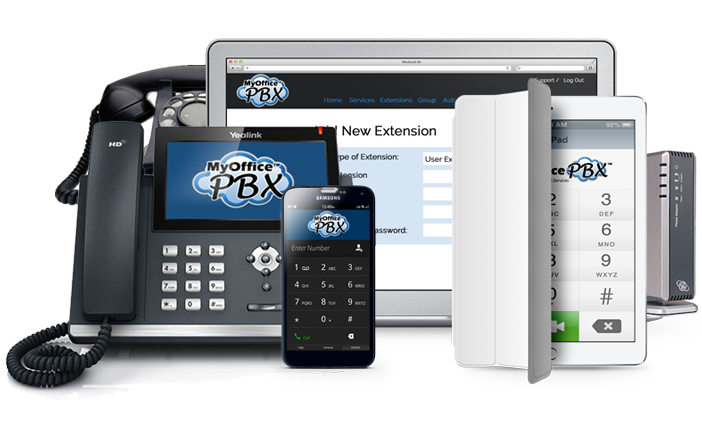
Don't throw away those old SIP phones.
In the old days of digital PBX phone systems, most vendors utilized proprietary technology for both hardware and software. This meant that if you purchased a Nortel PBX, you could forget about using your old Lucent phones. So, the decision to change PBX hardware, almost always involved a 100% forklift of the old system, including wiring. This is why, prior to VoIP, most businesses kept their office phone system for life. (Now you know why those PBX closets were always so dusty).
Industry standards have allowed VoIP phones to be sold independently of the PBX system they'll be attached to. In fact, thanks to VoIP technology, the phones are actually not even attached to their controlling phone system. VoIP phones communicate with their host system through the magic of Internet Protocol (the IP in VoIP). Standards like SIP (session initiation protocol) allow for the mixing and matching of PBX systems with virtually any SIP service provider or VoIP phones with virtually any VoIP phone system or Cloud PBX. The same holds true for today's VoIP phones.There are hundreds of VoIP phone vendors. Some specialize in providing the latest in features and functionality, while others concentrate on offering the lowest prices for quality products. This leaves us with options to choose the phones that best suit our particular needs, regardless of what brand PBX they'll be connecting to. Moreover, once we buy these phones, we have the option of taking them with us, if and whenever we choose to switch service providers. This is where BYOD comes in.
In the social world, you might have seen the acronym BYOB on an invitation to let you (the guest) know that the host will not be providing "spirits" at their event and that guests are welcome to bring their own. Well, the technology world, BYOD isn't much different. BYOD stands for Bring Your Own Device and simply means that a service provider is welcoming its customers to bring their own hardware to work with their service.
For example, let's say your previous service provider required that you purchase SIP phones made by Grandstream, and your new service provider offers a BYOD VoIP service. You can take the Grandstream phones with you to your new service provider and connect them to their network (as long as they are compatible with their service). This can save your business a lot of time and money, which makes it a win-win for both the customer and service provider.
Most reputable VoIP service providers have begun providing BYOD offerings. For example, IPComms' SIP Trunking service and Hosted PBX service (MyOffice PBX™) both offer BYOD capabilities, allowing customers to use the hardware they already own as a means to connect to their network and services without having to purchase new VoIP hardware. Needless to say that this drastically reduces your cost of service entry and, in most cases, gives you the ability to connect to your new service provider in minutes rather than days.
So for those of you thinking of making a change from your existing service provider to a new one, remember to ask if your new provider offers a BYOD service. It could save you a lot of time, and even better, a lot of money!
